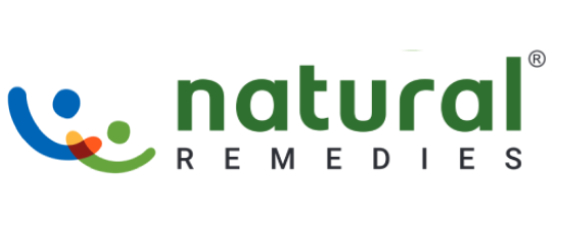
In recent years, the global health and wellness industry has witnessed a significant shift towards natural and herbal products. This shift is reflected in the remarkable growth of the global herbal supplements market, which has been driven by a multitude of factors. Botanical nutraceuticals, comprising herbal ingredients that offer a range of health benefits, have captured consumers' attention seeking holistic approaches to well-being.
In this blog, we will delve into the growth and market trends of botanical nutraceuticals, examining market segmentation by product type, application, distribution channel, and region while also highlighting the key drivers behind this phenomenon.
Market Segmentation
The global herbal supplements market is diverse and is expected to grow from $34.5 billion in 2022 to $52.4 billion by 2028. Moreover, the market is segmented by various factors providing insights into its dynamic nature. First, let's consider the product type. Botanical nutraceuticals encompass various offerings, including dietary supplements, functional foods, and beverages.
-
Product Type
These products incorporate botanical ingredients sourced from plants with reputed health benefits. The versatility of these ingredients allows them to be integrated into various products, appealing to consumers with varying preferences and needs.
-
Applications
Moving on to applications, botanical nutraceuticals find their way into several sectors, including pharmaceuticals, personal care, and food and beverages. Biocidin ingredients, derived from botanical sources, are increasingly recognized for their potential antimicrobial properties. This has spurred their integration into personal care products such as skincare and oral hygiene.
-
Distribution Channels
Notwithstanding other segmentations, distribution channels play a pivotal role in the accessibility of these products to consumers. They can be found in health food stores, pharmacies, online retailers, and mainstream supermarkets. The availability of botanical nutraceuticals across various channels makes them accessible to a broad consumer base.
-
Geography
Finally, geographic segmentation by region highlights the global reach of this market. Regions such as North America, Europe, Asia-Pacific, and Latin America are experiencing significant growth in adopting herbal supplements. However, it is important to note that Asia Pacific is the largest market for herbal supplements. This global reach signifies the widespread recognition of the benefits offered by botanical nutraceuticals.
Key Drivers
The popularity of botanical nutraceuticals can be attributed to several key drivers that have shaped market trends.
-
High Demand for Natural & Herbal Products
One primary driver is the increasing demand for natural and herbal products. Modern consumers are becoming more health-conscious and are actively seeking products that align with their preferences for clean and natural ingredients. Botanical nutraceuticals fit this demand perfectly, as they are derived from plant sources without synthetic additives.
-
Benefits of Herbal Supplements
Another crucial factor is the growing awareness of the benefits of herbal supplements. Traditional knowledge about the health-enhancing properties of certain plants has gained traction in the mainstream. Consumers are now more informed about the potential advantages of botanical ingredients, which include antioxidant, anti-inflammatory, and immune-boosting effects.
-
Growing Prevalence of Chronic Diseases
Furthermore, the rising prevalence of chronic diseases has led individuals to explore preventive health measures. Herbal supplements are being researched for their potential to support overall well-being and reduce the risk of chronic conditions. This shift towards proactive health management has created a fertile ground for the growth of the botanical nutraceutical market.
Market Trends
As the global herbal supplement market expands, several notable trends have emerged. Personalized nutrition, powered by advancements in technology and genetics, is gaining traction. This trend allows individuals to tailor their supplement regimens based on their unique genetic makeup and health goals, leading to more targeted and effective outcomes.
Innovation is another key trend, with manufacturers constantly exploring new ways to enhance the bioavailability of botanical ingredients. This ensures that consumers can derive maximum benefit from the supplements they consume.
The market is also witnessing collaborations between traditional herbal medicine and modern science. This convergence is leading to the development of evidence-based herbal supplements that combine the wisdom of traditional remedies with the rigor of scientific research.
Wrapping Up
The rise of botanical nutraceuticals in the global health and wellness market reflects shifting consumer preferences towards natural and holistic solutions. The market's segmentation by product type, application, distribution channel, and region showcases its diversity and global reach. With the increasing demand for natural products, growing awareness of the benefits of herbal supplements, and the prevalence of chronic diseases, the market for botanical nutraceuticals is poised for continued growth.
As consumers seek products that align with their health goals, the botanical nutraceutical market will likely remain a focal point of innovation and research. This industry's journey from traditional remedies to evidence-based solutions exemplifies the power of nature and science working together to promote better health and well-being.
Natural Remedies Human Health is one of the leading global health supplement providers. Our profound heritage originates from the fusion of ancestral herbal wisdom and contemporary scientific advancements. This synergy has led us to pioneer innovative solutions that address the demands of both the human and animal care sectors.
FAQ
1. What is driving the growth of the botanical nutraceuticals market?
The rising demand for natural products, awareness of herbal health benefits, and the increasing prevalence of chronic diseases are key growth drivers.
2. Which region leads the global botanical nutraceutical market?
Asia-Pacific is the largest market due to strong herbal medicine traditions, while North America and Europe are experiencing steady growth.
3. What are the main applications of botanical nutraceuticals?
They are widely used in pharmaceuticals, personal care, and food & beverages, with growing interest in antimicrobial and immune-supporting properties.
4. How are botanical supplements distributed globally?
They are available through pharmacies, health food stores, supermarkets, and increasingly via online platforms.
5. What trends are shaping the future of the nutraceutical industry?
Personalized nutrition, sustainability, better ingredient bioavailability, and the integration of traditional herbal wisdom with modern science.
